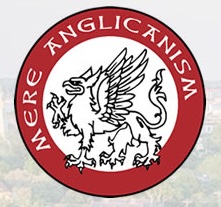This year’s Mere Anglicanism conference in Charleston, SC was an exquisite exhibition of Christian scholarship and apologetics. It was also the largest Mere Anglicanism conference with more than 600 attendees. The annual three-day event held this past weekend featured renowned Christian scientists, mathematicians and philosophers, all speaking on the topic “science, faith and apologetics: an answer for the hope that is within us.”

This was my fourth Mere Anglicanism, an event that takes its name from the C.S. Lewis book “Mere Christianity.” Unlike the book, and other C.S. Lewis writings, Mere Anglicanism has at times seemed way over my head and even verging on esoteric. While it may not be saying much that I needed a dictionary and 1662 prayer book to make it through past conferences, I can assure you that not a few ordained attendees were right there with me. That said, I left this year’s Mere Anglicanism excited and wanting to share what I learned.
I eagerly told my 11 member Sunday school class how the eloquent Professor John C. Lennox shared with us his stinging rebuke to “the smartest man on earth” (his words), Stephen Hawking. Some time ago, a reporter phoned Lennox asking for a response to Hawking’s recent comment that the afterlife was a fairy tale for people afraid of the dark. With a wry smile, the unashamedly Christian mathematician told us, “I said, ‘I believe Atheism is a fairy tale for people afraid of the light!’” The same mix of applause, laughter and “oooh’s” that met Lennox’s retelling of this story met my re-retelling in Sunday school. What good encouragement came from hearing a confident and cogent defense for the hope we have within us.

Dr. Stephen Meyer, philosopher of science, addressed the audience and even brought some “toys” along with him. The University of Cambridge-educated scientist effectively used what looked like a toy train to illustrate how amino acids, compounds essential to producing proteins, link together. With train in hand, Dr. Meyer told us how it is mathematically improbable that properly functioning amino acids could randomly form – as many neo-Darwinists believe (you’ll have to use a dictionary or Wikipedia on that one). Putting it in my own words, it seems that I have a better chance of winning the mega-millions lottery twice than amino acids have of forming without an intelligent creator behind them. Taking complex topics and making them accessible and understandable to the common man is something C.S. Lewis excelled at. Presentations like that of Dr. Meyer and others at Mere Anglicanism were in keeping with this synthesizing of the complex into the more understandable.
In no way do I claim to completely grasp the presentations of highly-qualified speakers like Professors Alvin Plantinga, Peter John Kreeft and Michael J. Behe. However, I can honestly say I left this year’s conference with more than a piqued interest in the meeting of science, Christianity and apologetics. The conference’s purpose is to provide the tools and resources to disciple, train and educate lay and clergy leaders and it seems like they are well on their way to doing that.
Recordings of the speakers should be up by March of this year and available on the Mere Anglicanism website at www.mereanglicanism.com.


